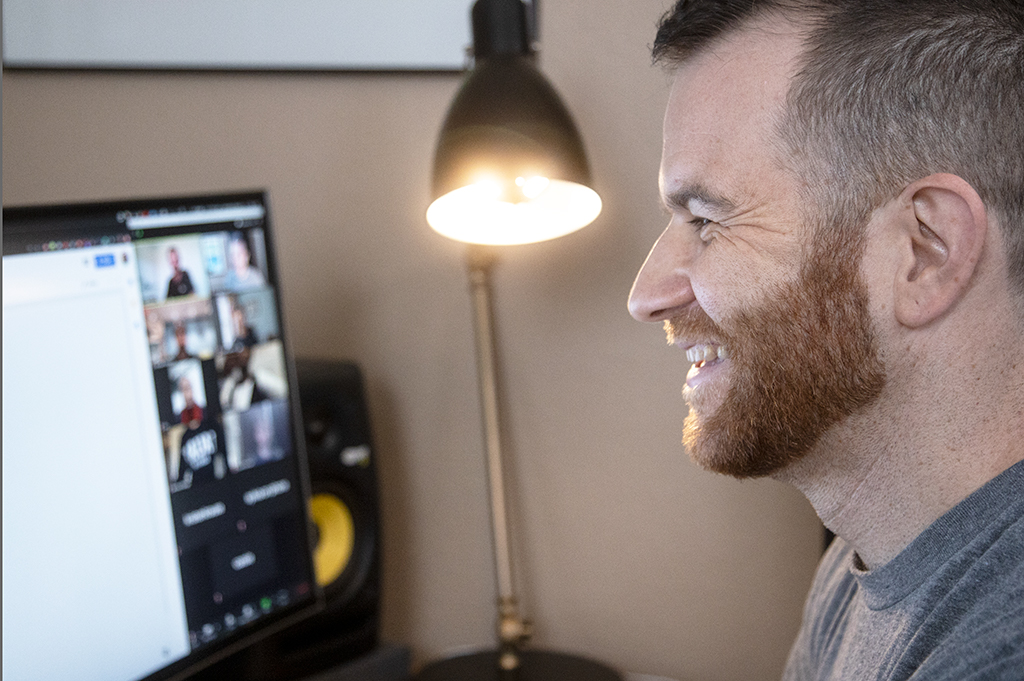
Many of us are working from home for the first time, which can definitely be a challenging adjustment on top of everything else happening right now. As someone who’s been working from home for the past several years, I figured I could share some strategies for working from home that have been helpful for me.
When I first started out, it was an unexpectedly disruptive transition. It took me almost a full year to get accustomed to my new work-from-home routine. I realized there were distractions at home that I didn’t have when I had a separate work office to go to on weekdays.
A lot of the time, the idea of working from home is pretty well glorified. While there are perks such as saving time on the “commute” from your bedroom to your desk, there are also distractions and unglamorous aspects that can happen throughout the day.
There are physical, social, and mental benefits that come from using separate spaces for different purposes—which is, I believe, why we’re typically going into an office for our jobs. When you get out of the house to go to a separate workplace, it helps you task change, get work done, and connect with other people. Having a change in your environment is a positive thing, but it doesn’t happen by default when you’re working from home.
To help make the transition easier, here are some strategies for working from home I’ve found helpful.
1 / Get dressed for work
While the idea of working from home in your pajamas sounds nice, the novelty wears off pretty quickly. Following your normal boot-up sequence and routine before work will help you get into the focus zone and be more productive during the day.
Do whatever you’re comfortable with and what makes the most sense for your work. But the more you’re able to keep to a normal morning routine—getting ready and officially sitting down at your desk—the more beneficial it will be.
2 / Set your priorities the night before
This is the first step of my morning routine that actually starts the night before. It’s been helpful for my productivity and I’d encourage you to do it as well. I write down the things I need to prioritize for the next day and choose which one I start on first, second, third and so on.
Many people do this as part of their bullet journaling practice, which I’ve recently started and am enjoying doing.
3 / Schedule a work session in the morning
Another helpful thing to do is scheduling a meeting or work session at a specific time in the morning where you need to be.
4 / Have a dedicated workspace
What’s also helpful is having a dedicated workspace—whether it’s a desk, room or area where your brain knows it’s time to focus and get to work. This is what’s happening when you leave your house and go to your office or coworking space.
There is an exception to this if you’re feeling stuck or need a change of space to shake things up. You can take your laptop into the kitchen, or into the living room and continue working. Sometimes, moving around to different areas of the house can help to get you back in the zone. While we’re relatively restricted from coffee shops at the moment—that’s a great option when the time comes.
5 / Create work times and boundaries
Creating work times and boundaries is one of the most important strategies for working from home. It helps to maintain a sense of schedule for yourself but it’s essential if you have a partner and family members around the house as well. Setting those times and boundaries will help everyone have the focus and peace when they need to have it.
It’s helpful to establish some sort of signaling system you can use to tell people in your home that you’re in a focused work session or meeting. That way, the other people in your home know not to interrupt you unless it’s an urgent matter.
6 / Leverage a more flexible schedule
It might be obvious to some, but one of the benefits of working from home is the flexibility to schedule things at more beneficial times for you. It’s amazing how patterned we can get when we’re used to doing something a certain way for a long time (the daily rush-hour commute, exercising after work, etc.).
This can be as simple as exercising in the morning or in the afternoon if you’re able to do so during the workday. It could also look like running errands or calling businesses at off-peak times. There are ways you can save both time and money by rescheduling certain parts of your day.
7 / Block out times of your day
Prior to working from home, you likely had more set times for lunch, dinner, family time, and exercise. Do what you can to maintain that regularity. With a more expansive schedule, it can be easy to get into a task and forget to eat lunch or push it back until later.
Similarly, when it comes to family, personal or exercise time, continue to block out times for that. I’ve found that with increased flexibility, it’s beneficial to maintain a schedule so everything doesn’t get tossed in the air.
8 / Create movement throughout your day
Out of all the strategies for working from home, this one has the biggest impact on your health. It’s too easy to barely move at all when you’re working from home.
Instead of walking from your car to the office or to meetings within the building or biking to work, you may barely take 100 steps in a day at home. From your bedroom to the bathroom, to the kitchen, to your office, back to the kitchen and so on.
Find ways to move around during the day. Whether it’s getting up from your desk to stretch, going for a walk, doing some quick movements in between tasks—finding ways to keep your body moving will be beneficial both physically and mentally.
9 / Maintain social connections
Another tip for working from home is to maintain social connections outside of the home—even if it’s over video chats or phone calls. When I first started working from home, I didn’t realize how much I depended on the social connections I was getting from being with other people at the office.
Sure, there were more distractions with people talking around the office or interrupting my work. But as an extrovert, I realized I really depended on those different interactions. If you’re new to working from home, you may be experiencing lower energy and not feeling well because you’re not around enough people.
Right now especially it’s important to get on more video calls, virtual hangouts and phone calls with friends and family. Just because we’re all social distancing and keeping at home doesn’t mean we need to disconnect from the world.
10 / Respect space and boundaries
The last bonus tip I have for working from home is respecting space and boundaries when it comes to your partner or the members in your household. It can be a tough transition when you’re not used to being at home 24/7 with others.
Everyone needs time for themselves and everyone needs their own space. When you and your partner are both operating within the same square footage, it’s easy to interrupt each other or not give each other enough space to maintain a positive and healthy relationship.
I hope these strategies for working from home are helpful for many of you during this time. What are some strategies that help you stay focused and productive when working from home or anywhere that’s a non-traditional work setting?
